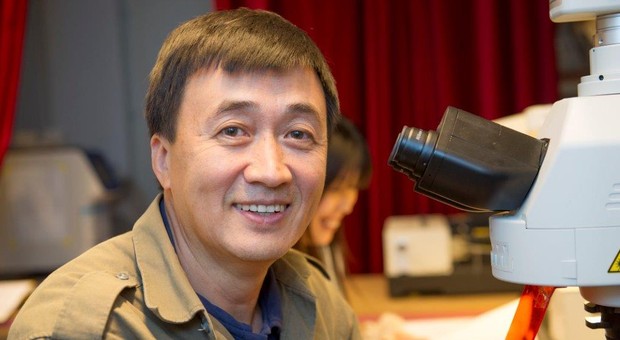Obesity and its related disorders constitute one of the greatest threats to global human health. According to the World Health Organization more than 1.5 billion adults are overweight and at least 400 million of them are clinically obese.
Yihai Cao is professor at the Karolinska Institute in Sweden and has developed concepts and hypotheses for research in the field of angiogenese (formation of blood vessels) which may give rise to new treatments for obesity and metabolism. In cancer research there is a profound focus on angiogenese. Research shows that the supply of blood from blood vessels to cancer tumours is an essential process for the tumours’ survival and dissipation. Yihai Cao uses knowledge from cancer research to study the rather unexplored area – how angiogenese affects adipose tissue and adipose cells.
In 2014, Yihai Cao was chosen to receive the Novo Nordisk Foundation’s Advanced Grant of DKK 10 million over a five-year period. His research project: Modulation of Adipose Angiogenesis made him stand out from 200 candidates. Yihai Cao explains that the method in his project differs from other methods used in the field.
– Our lab is different from others as we are observing how fat cells proceed and are considering the fat cells from different angles – trying to understand other structures in the fat tissue and how these will change fat cell functions.
Yihai and his lab’s recent work show that the modulation of the blood supply to adipose significantly regulates the adipose tissue mass and function. By using various genetic and pharmacological experiments they study the mechanisms by which blood vessels control adipocyte function. They target the vasculature of adipose tissue as the blood vessel networks have a crucial role in the development, maintenance and expansion of adipose tissue. These experiments are frequently used in cancer science, but rarely within the areas of obesity and metabolism.
A DISTINGUISHED GROUP OF SCIENTISTS
Since 2012, the Novo Nordisk Foundation’s Nordic Research Committee has awarded a Novo Nordisk Foundation Advanced Grant to the best application under the heading Endocrinological research and experimental physiology for scientists in Nordic countries. The requirements for receiving the grant are that the researcher is at a high international level, that the research project is of the highest international quality, and that the project has a long-term outlook. Bo Ahrén is chair of the Nordic Research Committee and explains:
– The Foundation’s Advanced Grant is awarded annually with the aim of pinpointing a top researcher in the Nordic countries. It differs from the other grants awarded by the foundation because it aims for research projects with a long-term perspective. The headline award is for DKK 2 million per year over 5 years, with other top-class applications receiving a maximum of DKK 1 million per year.
As Yihai Cao actually applied for a 1 – 3 years’ project grant, he was tremendously surprised when the Nordic Research Committee chose his project.
– When applying for a grant you don’t know the odds. In this case I considered them very small because there are so many other great projects and scientists applying for this specific grant. I was very surprised that the committee chose me to receive the advanced grant – it means everything to me as a scientist that they recognize and believe in my work.
– The extended time and great amount of money really brings the project to life. It gives my lab and I the opportunity to develop this new field of research and to position ourselves at an internationally leading level.
Bo Ahrén elaborates on the reason for selecting Yihai Cao’s research project:
– Yihai Cao is selected for his outstanding research in endocrinology. His research project has a long-term perspective and a focus on understanding the mechanisms of angiogenesis in adipose tissues as the basis for the development of new targets for therapy.
When a scientist is chosen to receive the Advanced Grant he has to present a 5 year action plan for the research project. Yihai Cao has already presented the plan for his project, but his perspectives for the project extend beyond 5 years:
– When carrying out research I always want to know that the work is meaningful and will be beneficial to patients. I know that with this grant my lab and I will have a great influence on future drug development, possibly over a 50 – 100 year timescale. Meantime we may even change a paradigm of thinking.








